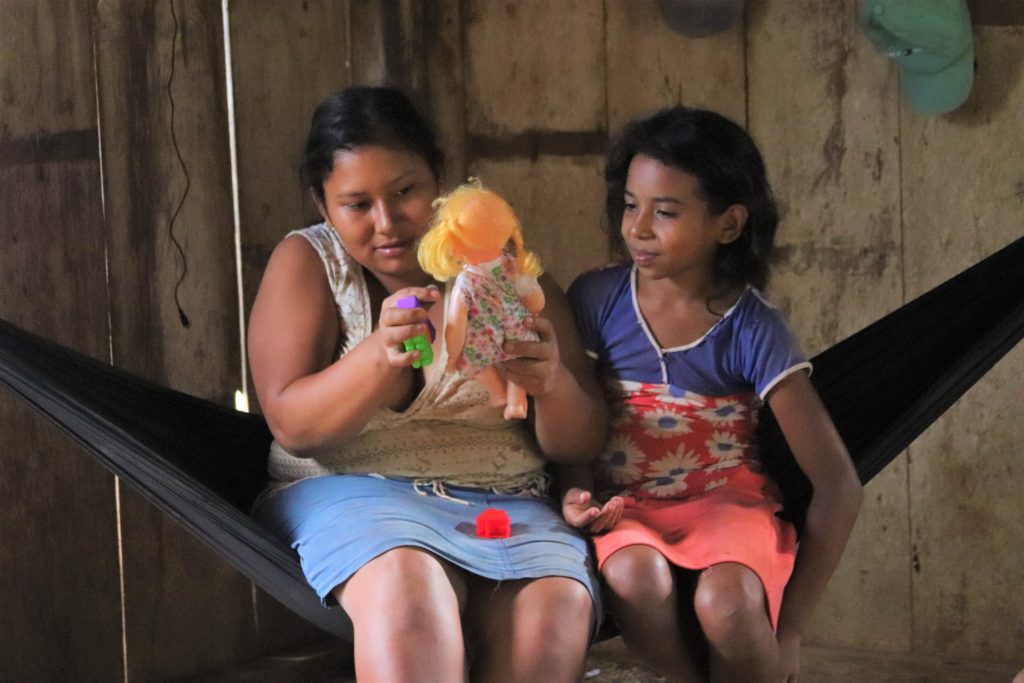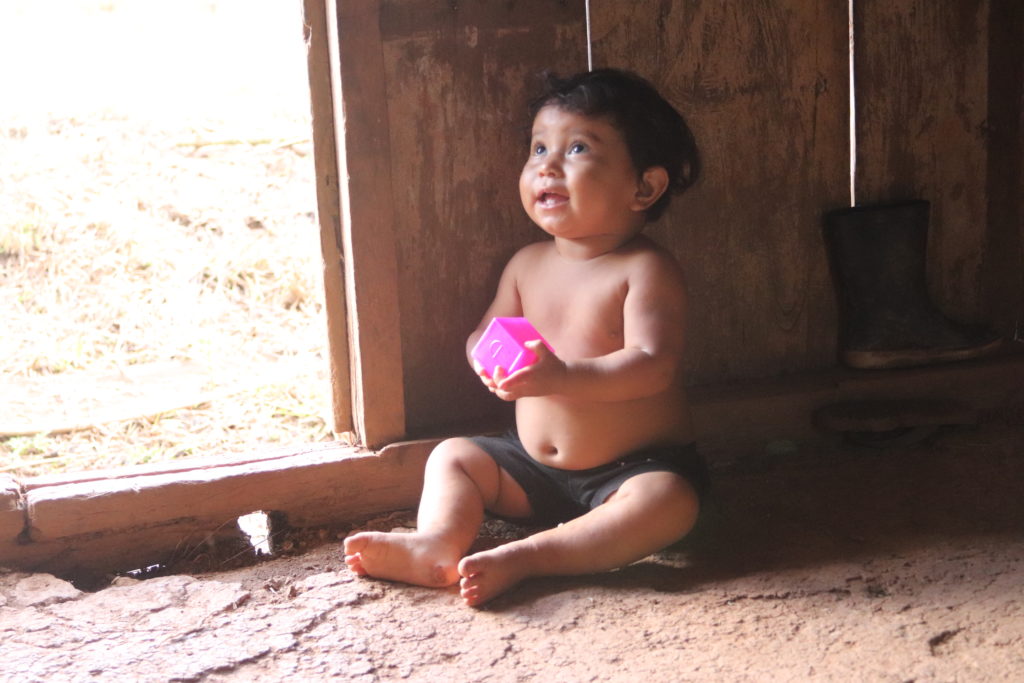This week, we share with you a journal entry from one of our team members who recently visited El Cedro, in the South Caribbean Coast Region, the most remote community you help us serve.
In Nicaragua, just as in many other countries around the world, there is a clear and visible line between those who can afford a more comfortable lifestyle and those who struggle every single day to bring even just one meal to their families. And maybe because this is a small country, that line is even more clear and even more disturbing.
I was raised in the capital city of Managua, where most of the economic growth in Nicaragua is concentrated. This is the city where you can see more buildings, shops, restaurants, and cars compared to other cities in the country. I was born in a Catholic home and went to a Catholic school. I have had full access to water and electricity throughout my whole life. Not getting an education was never an option, and my parents made sure I knew that; school for them was a “must” in my growth and development.
Based on this context, I would like you to hear the story of another Nicaraguan girl named Dulce. I met Dulce in the rural community of El Cedro around a month ago. As AMOS Communications Coordinator, I was taking photographs of our Primary Health Care team as they completed interviews for the baseline for our “Parenting with Love” program. One of the last houses we visited was Dulce’s. She is a 19-year-old girl, and a mother of a 4-year-old girl and a little baby girl. When I met her, I remember thinking, “she is 5 years younger than me, and she is already a mom.”
As the interview began, and we started to get to know her better, I couldn’t help but notice Dulce’s behavior. She acted like a teenager. She was really shy and nervous, always worried about what we would think of her answers, or whether her answers were right or wrong. She was still learning how to be a mom, and she listened carefully to our team’s recommendations.
There was a moment where she mentioned her baby was sick, and she showed us the doctor’s prescription. It was a prescription she couldn’t follow, because she didn’t know how to read.
Carla, a member of our AMOS team, patiently explained to Dulce how many doses of the medication she had to give to her baby, and at which time of the day. We wanted her to remember the specifics, because we knew she wouldn’t be able to read them later on.
We were almost ready to leave when Carla took a little doll out of our bag of supplies so Dulce’s daughters could play with it. I will never forget the look on Dulce’s face when she took the doll in her hands, combing its hair with her hands and fixing its dress. It was almost as if she wanted to play, to be a little girl again.

Coming back to Managua, I couldn’t stop thinking about that moment. How many times have I felt my life is meaningless and boring? How many times have I talked to God about things I had to go through and I considered unfair? Still, there is this girl, born in the same country, a girl who could be me. A girl who had to grow up faster, become a mother, become responsible for a household. A girl who instead of dressing a doll, was dressing a real baby girl.
I give thanks to God for giving me the opportunity of meeting Dulce and her daughters. She taught me so much in just a couple of hours. I don’t think I could thank her enough.
The deep connections that are formed through this amazing work of sharing health and hope are what inspire me the most. I’m grateful to be exposed to the stories of people who are just like us, who try to do the best with what they have, people with dreams and expectations who have so much passion for life. As long as we don’t forget that we are all equal, that we all belong to the same world, there is still a chance that we can make our world better together.
Your support today can help us continue sharing health and hope with Dulce and thousands of families like hers.
About the author:
Keyra Baca, AMOS Communications Coordinator, has a degree in Political Science, and has been working with AMOS for 3 years. She is in charge of collecting the photos and stories we share with you in emails and social media, newsletter designs, and website updates.


